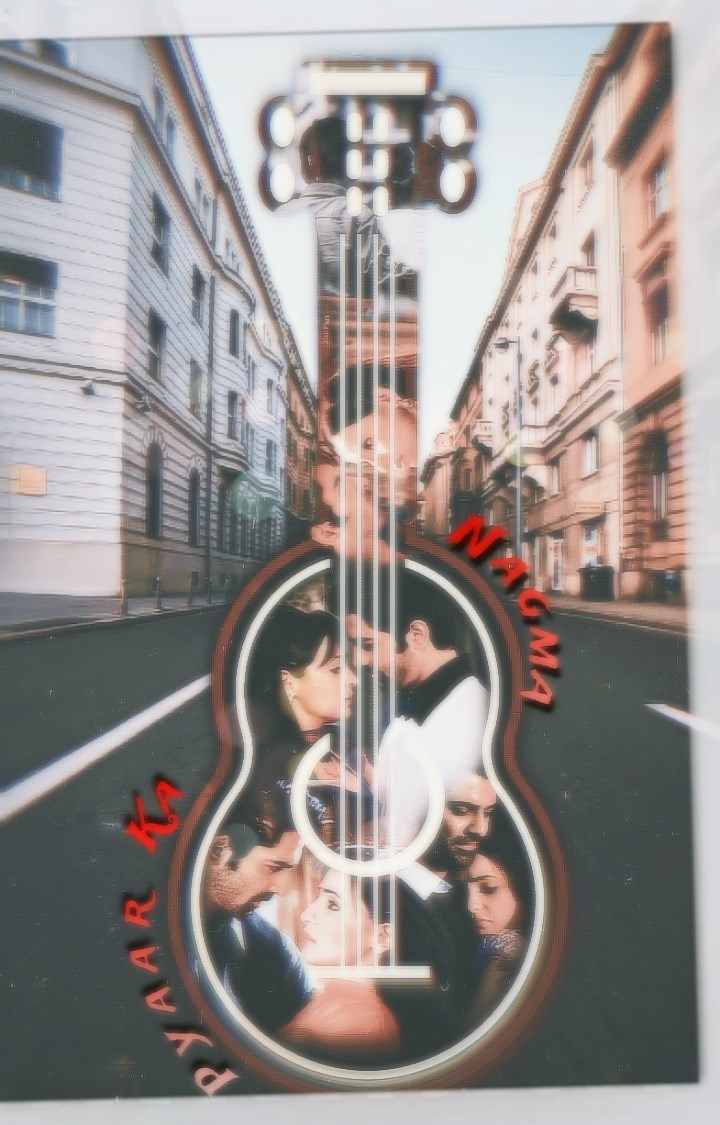Chapter 17:
"During second world war Indian army was the largest army to volunteer with two and half million men in size. It still remains the largest volunteer army in the world and the third largest army. Army budgets are rarely contested while the general and Railway budgets are…you know what they are and how they arrive at it," Payal said motioning the two men to sit down.
"Indian military refrains from being in mainstream – be it media or politics and the boundaries they draw are very strictly followed. That's why corruption, if happens in military, is really not all that known to the outside world. But the word is, corruption is relatively less." Gupta replied.
"But Gupta, the bureaucracy however is much complex and stretched out when it comes to military – especially in India since they have ensured that they stay behind the screen. Even in entertainment industry, their representation is hardly noticeable." Rathore added.
"Bollywood rarely represents any industry or work culture for that matter. So let's not take that as a talking point." Gupta chided. Rathore smiled at his friend.
"Here you go," Payal said bringing up several documents on screen.
"What are we looking at?" Gupta said wearing his spectacles and peering at the screen.
"Wait…this…cannot be…" Rathore stammered.
"This is budget and administrative requirements for implementing conscription." Gupta said. "Why would anyone want something like this? And no government would sign this bill in our country as it would never get close to approval with the size of democracy like ours. And let's not even get started on UN's pressure on us if we pursue in this direction."
"Conscription is mandatory national service which in most countries translate to military service. It ensures that major section of population is in a state of awareness and it boosts national security. On the other hand, it violates individual rights." Payal said leaning in chair.
"This is not going to work. You cannot pull off something this large without getting a full buy-in from both the houses. And as Gupta mentioned, not to mention global criticism that would come. It's…I don't know why a thought process even exists in this direction," Rathore said.
"Number of people under poverty line is only increasing. In this country you don't have to worry a lot of regulation on advancement in science and technology because we are at least a decade behind in technical advancement as compared to other developed countries. Our local police stations are far from being centralized, we have months waiting period for DNA testing, there are approximately thirty thousand open cases in Supreme Court, we still battle scams costing thousands of crore of tax payers' money on daily basis, national literacy rate isn't improving, poverty index is growing and concept of sanitation is still new and doesn't really exist in public transportation or outside comforts of a midscale establishment. Conscription brings discipline to life, improves lifestyle, provides livelihood, decreases crime and drug usage in youth as they would be drafted etc." Payal replied. "I am not saying this, but this is a part of recommendation."
"Whoever is recommending this hasn't really thought of what happens when people actually react to this madness. The concept of freedom at its truest nature stops to exist. A government robs a citizen the choice of serving the country but makes it an obligation. This in turn complicates the security process than helping. If a citizen dislikes the government or condemns the war, his political objection would be considered as a felony and not exercising his fundamental rights. It's a direct conflict to the constitutional right." Rathore explained further.
"Oh, there is a fix for that too." Payal said and opened another document.
"You got to be kidding me. There is a recommendation to amend the constitution with regards to fundamental right?" Rathore was surprised.
"That would be the first thing they will tackle as soon as parliament is in session and that would be in summer. And during winter session, conscription bill would be presented." Payal replied.
"Who are these people?" Gupta asked the question which Rathore was avoiding. Payal looked at the two men fully knowing that they already had a hint.
"Our new government," she replied bleakly. Rathore and Gupta exchanged worried looks. Their deepest fear was coming true.
*****
"Where are we going?" Khushi asked Akash. It was early in the morning and overnight rains had made everything wet.
"You will know when we get there," he replied. She looked at Arnav, who was walking on her left with sudden burst of worry.
She turned back to Akash and asked, "Are you taking us to the gallows?" She asked seriously. Arnav looked at her startled and Akash stopped in his tracks.
"What is wrong with you?" He asked her with widened eyes.
"Execution by gunfire then?" She cottoned on.
"I am not taking you out this early in morning to kill you both," he said annoyed. He smiled and added, "It's not time for that yet." Akash started walking again ignoring the looks on Arnav and Khushi's face.
"We are here," Akash said when they reached the school premises. There were six men and three women sitting in chairs and in front of them, four couples sat.
"Let's begin the session," Akash said as soon as he was in their hearing vicinity.
"What's going on?" Khushi asked. Sleep had completely left her eyes and she was fully alert of the environment she was in. It was close to two weeks since they were living in compound but that didn't make Akash any less of a man she believed he was.
"Every once in a while we have people who want to leave this place. Holding someone against their will and oppressing their freedom inside this compound by making them stay when they don't want to, would only give birth to rebellion. And rebellion isn't good for a society like this. So in those situations, a committee would be formed and they would assess the causes on case by case basis. Many people want to lead a life which doesn't comply to the standards set here. We reach compromises in some cases and in few, we let go of the people who want to go." Akash explained.
"Aren't you worried that people who walk out of here would let others known about the compound's location?" Arnav asked.
"We sedate these people and leave them in places where they would have told us to leave them. No one comes or goes out of here with full consciousness on, Arnav." Akash said with a smile.
"How often does this happen?" Arnav asked again.
"It's not often actually. Most of them time the kids are left behind in this compound while the parents go back to the outside world because of their lingering attachments. Many here are born and brought up here and have no intentions to leave. As a part of growing up, they are given a choice to go outside this compound. My organization runs lot of schools, cottage industries, orphanages, NGOs etc. They would be hired in one of these places." Akash said.
"Isn't this a bit risky?" Khushi asked.
Akash looked at her strangely. "What do you mean?"
Khushi looked at Arnav, who took over. "There is always a risk of these people telling others about existence of such a place. Wouldn't that cause problems to you and the ideology that you practice here? I mean, being part of this society, away from civilization where you get to be….whatever you are now. Wouldn't outside interference tear down what you are trying to achieve here?" Arnav explained further.
Akash looked at both of them quietly. After several moments of prolonged silence, he smiled.
"This is frankly surprising coming from the two of you. But then again you both are morally handicapped to think other than saving your own damn asses." Akash said tonelessly.
"What do you mean?" Khushi asked.
"Check back on history Khushi. What happened when a man put his ideology before the freedom of people? The oppression led to civil unrest and the country broke down. And in another instance, what happened to the country whose leader believed that only certain people were fit to live in the country and others were to be eliminated if they didn't comply with the standards set up?" There was unusual calmness in his voice.
Khushi took a step back as if she was physically slapped. Only then she understood the implication of what she and Arnav had automatically derived out of his actions.
"Do you still believe I have robbed people of their freedom Arnav?" Akash asked Arnav remembering the accusation from days before. Arnav and Khushi hadn't been entirely wrong.
But they weren't entirely right either.
"I do," Arnav said.
"Why?" Akash asked surprised. He believed he had shown enough proof.
"Because look at them," Arnav said nodding at the couple who were presenting their case. "If they were truly free, they wouldn't be bargaining for it." Arnav chuckled mirthlessly. Akash looked at him with stormy eyes.
"The ideology is not dependent on the leader anymore to enforce it because the society has completely surrendered to it. They truly believe that the system that has been set up is right and freedom from this place requires warranty just like a commodity's shelf life. You haven't robbed people of their freedom. You have managed to mutate the thought process of an entire generation here. That's worse than kidnapping us and probably killing us too." Arnav replied. "This is nothing more than an organized zoo Akash. It's a wannabe Atlantis amidst a dystopia." Arnav's tone was filled with sorrow as the watched a couple argued about validity of the reason to go out of compound.
Akash fell silent and didn't speak for rest of the session.































44